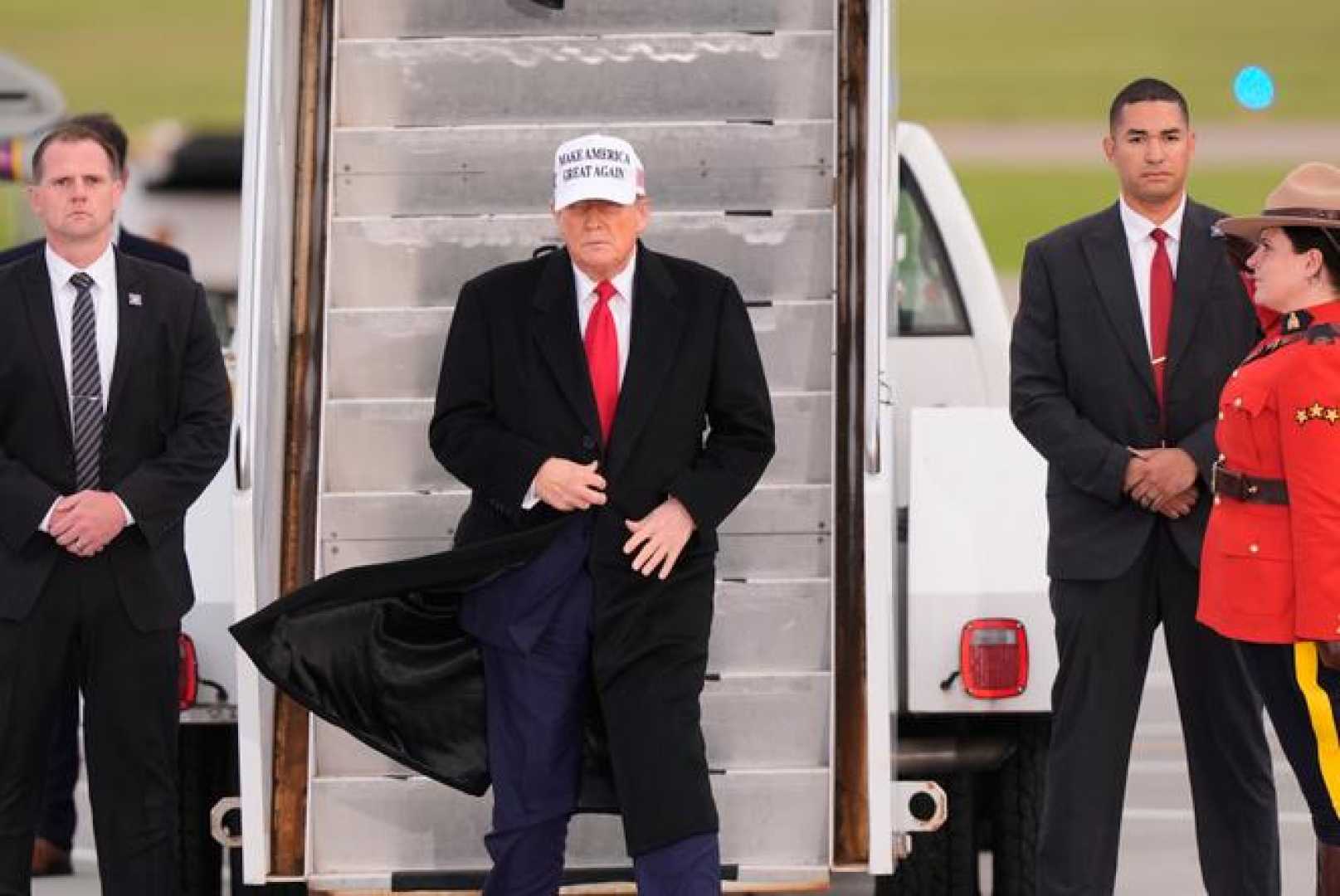Politics
Trump Faces Pressure Over Iran Strikes at G7 Summit

KANANASKIS, Alberta, Canada — President Donald Trump is navigating intense pressures from both his supporters and Israeli leaders as he considers a critical national security decision regarding Iran. On June 16, 2025, Trump arrived at the G7 summit while facing calls for the U.S. to engage militarily against Iran in light of Israel’s recent actions.
Israel has expressed a strong desire for the U.S. to leverage its military capabilities to dismantle Iran’s nuclear program. Former Israeli Defense Minister Yoav Gallant articulated this sentiment in a CNN interview, emphasizing that the U.S. has an obligation to ensure regional stability and prevent Iran from acquiring nuclear weapons.
Israeli Prime Minister Benjamin Netanyahu has also voiced skepticism about diplomatic efforts with Iran, claiming they have only served to delay decisive action. Trump’s statements indicate he is contemplating a military response, though he has simultaneously called for Iran to engage in negotiations.
“I have to be back early for obvious reasons,” Trump remarked, when discussing his early departure from the summit. Trump’s comments reflect the mounting tension back home, influenced by significant figures in conservative media like Steve Bannon and Tucker Carlson, who have warned against deeper military involvement in the Middle East.
Bannon argued that a strike against Iran would contradict Trump’s core “America First” principles while suggesting that Israel should independently make its defense decisions. This debate may threaten the unity of Trump’s support base, with far-reaching implications for his foreign policy legacy.
As Trump contemplates his next steps, he is grappling with conflicting interests from within his party and international allies. European leaders at the G7 have expressed concerns over the likelihood of escalating military conflict in the region, particularly if military action is perceived as undermining diplomatic efforts.
The potential ramifications of U.S. military action against Iran could reshape the geopolitical landscape of the Middle East, influencing America’s global standing. Trump has not yet committed to a specific course of action, choosing instead to focus on negotiating a deal with Iran, despite increasing pressure from supporters of military intervention.
Gallant highlighted the sensitivity of the situation, noting that Trump’s decisions could change not only the future of U.S.-Iran relations but also the broader dynamics of Middle Eastern security.
“The determination of the American president… will pave the way to America entering this vital operation,” Gallant warned. “The president of the United States has the option to change the Middle East and influence the world.”
Meanwhile, Trump’s social media statements have underscored his firm stance against Iran’s nuclear ambitions, calling for immediate action and heightened awareness regarding the risks Iran poses.












